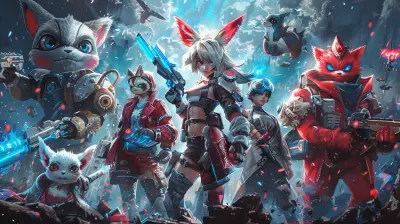The Social Benefits of Tabletop Role-Playing Games
11 October 2025
Picture this: a group of friends huddled around a table, character sheets scattered like ancient scrolls, dice tumbling like fate's own roulette, stories unfolding as vividly as any blockbuster movie. Sounds magical, right? That’s the charm of tabletop role-playing games (TTRPGs). They’re not just about goblins, dungeons, or mysterious quests—they’re about people, connection, and community.
In a world dominated by screens, instant messages, and never-ending scrolls, TTRPGs swoop in like a wizard casting a spell of human warmth. They bring people together, spark imagination, and forge bonds stronger than mithril. But what exactly makes TTRPGs such rich soil for social growth?
Let’s delve into this fantasy-meets-reality world and uncover the treasure trove of social benefits that come with rolling dice and telling stories face-to-face.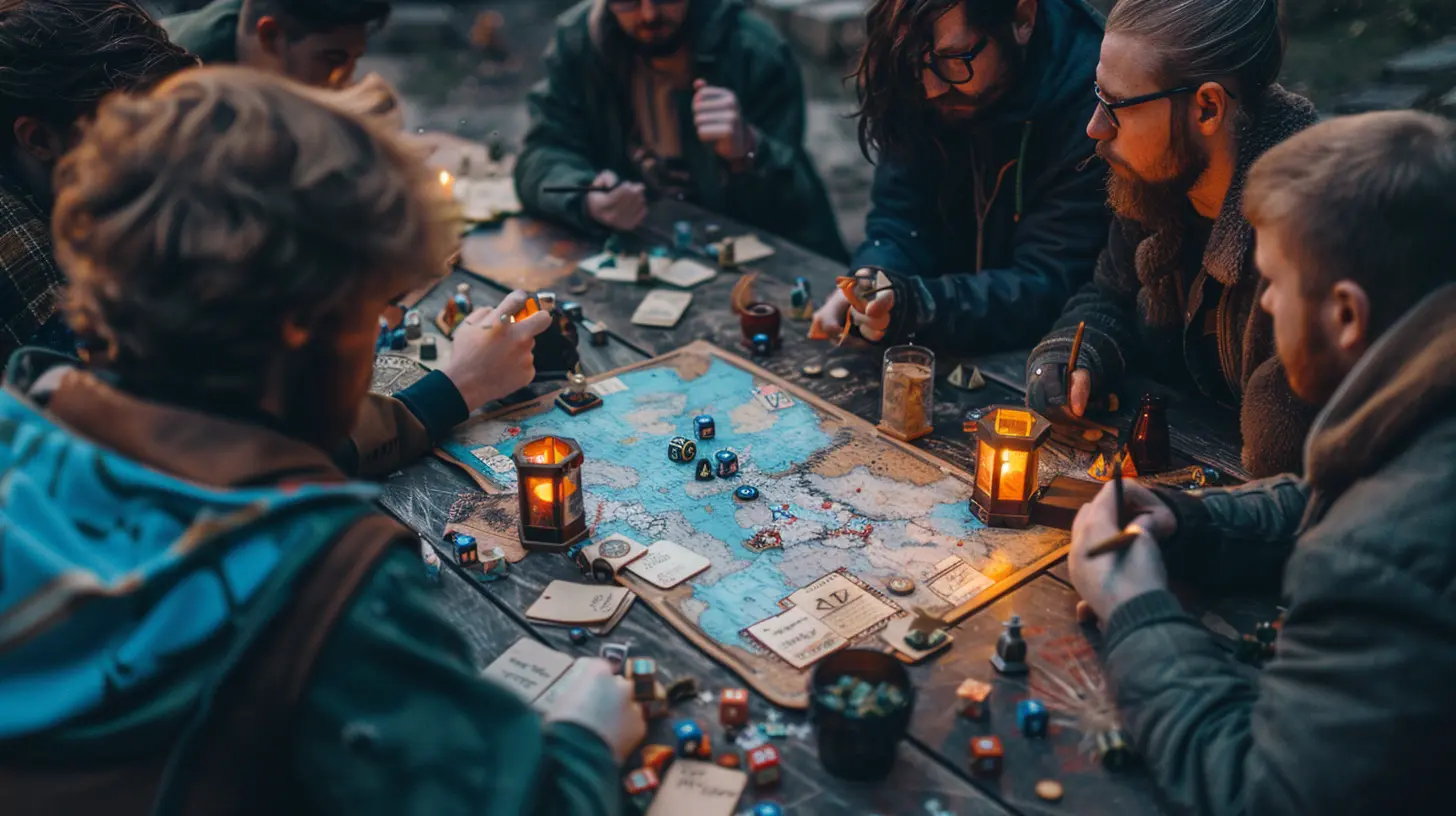
🎲 What Are Tabletop Role-Playing Games Anyway?
Before we go slinging spells and swinging imaginary swords, let’s clear the fog on what TTRPGs are. A tabletop role-playing game is like collaborative storytelling on steroids. One person (the Game Master or Dungeon Master) sets the scene, narrates the world, and plays the supporting cast. The rest of the group—players—become protagonists, each with their own character full of quirks, strengths, and flaws.Unlike board games with rigid rules and winners, TTRPGs are fluid. The rules provide structure, but creativity, teamwork, and imagination are the real MVPs.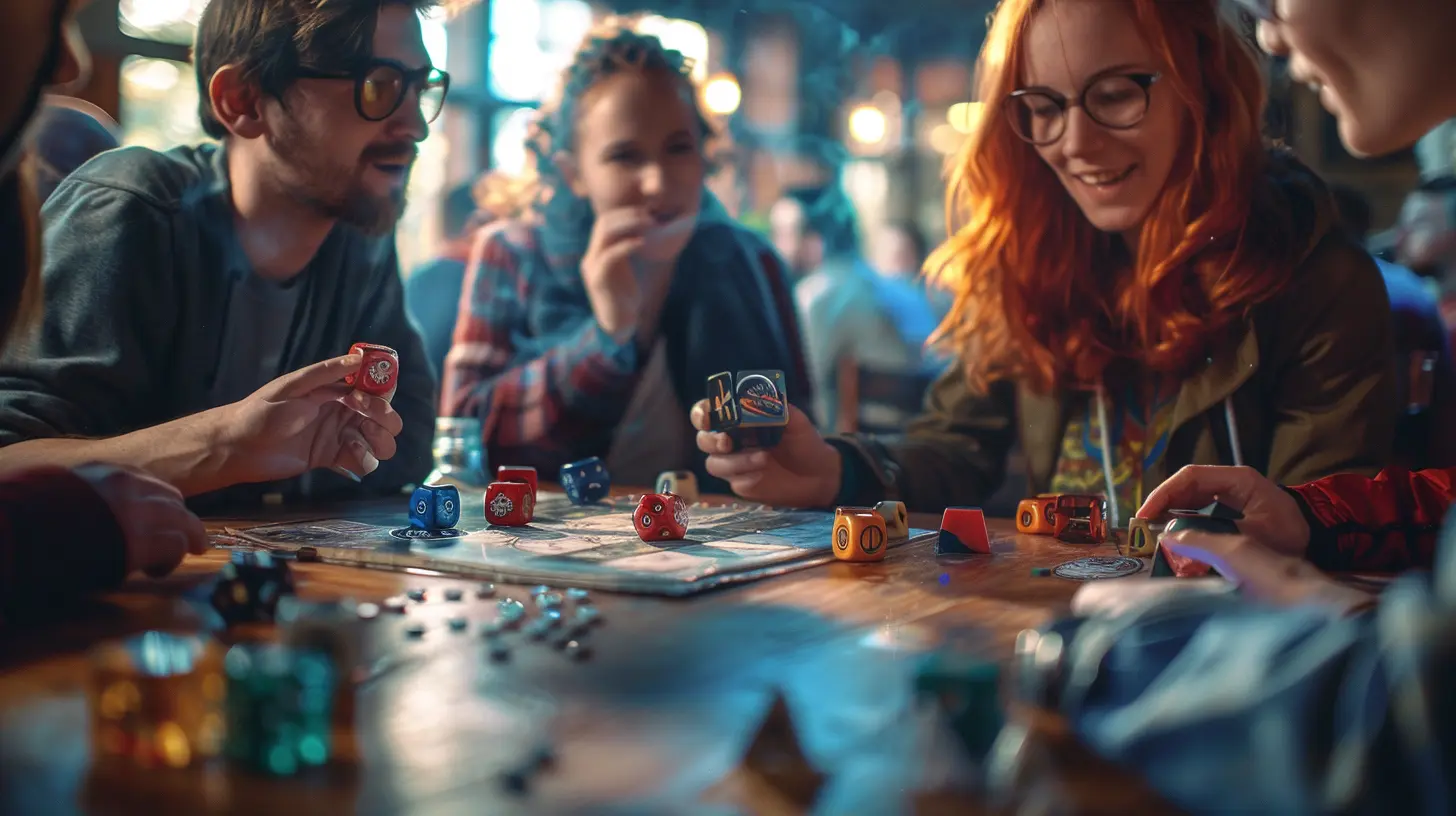
🗣️ TTRPGs: Where Communication Comes to Life
You ever stumble trying to make small talk at a party? Or wish conversations felt more natural and less awkward? Playing TTRPGs is like going to the gym for your communication muscles.Practice Makes Perfect
In a typical game session, you’re constantly talking—negotiating with NPCs (non-player characters), planning with teammates, or improvising dialogue. This isn't small talk; it’s meaningful interaction with a purpose. The more you play, the more confident and articulate you become.Active Listening Galore
You can’t just wait for your turn to speak—you need to listen, react, and support. Whether it’s catching a teammate’s subtle clue or responding to a plot twist, TTRPGs train you to truly hear others. That’s a rare skill in today’s interrupt-everyone culture.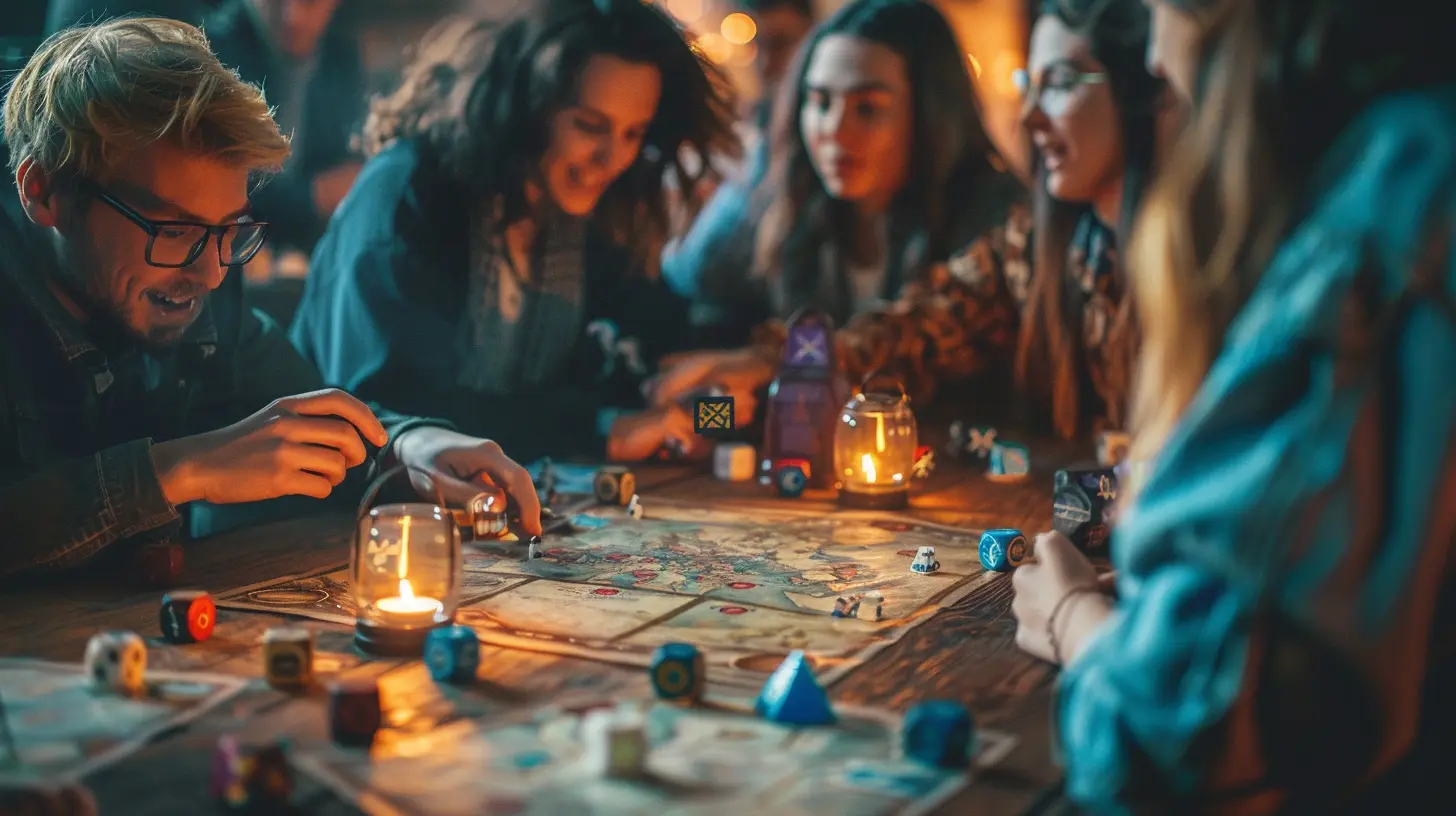
🤝 Building Bonds That Last a Lifetime
Ever notice how shared adventures—real or imaginary—pull people closer together? There's something about overcoming challenges as a team that tightens bonds like a well-crafted rope.Trust and Vulnerability
Role-playing a character means showing a side of yourself. Maybe you’re playing a brash bard or a nervous wizard. You open up, and in that vulnerability, you invite others to do the same. That’s where trust is born.Inside Jokes and Shared Stories
“Remember the time your dwarf tried to seduce the dragon?” These are the kinds of moments that become inside jokes, the building blocks of friendship. Playing together creates a tapestry of shared experiences that linger long after the dice stop rolling.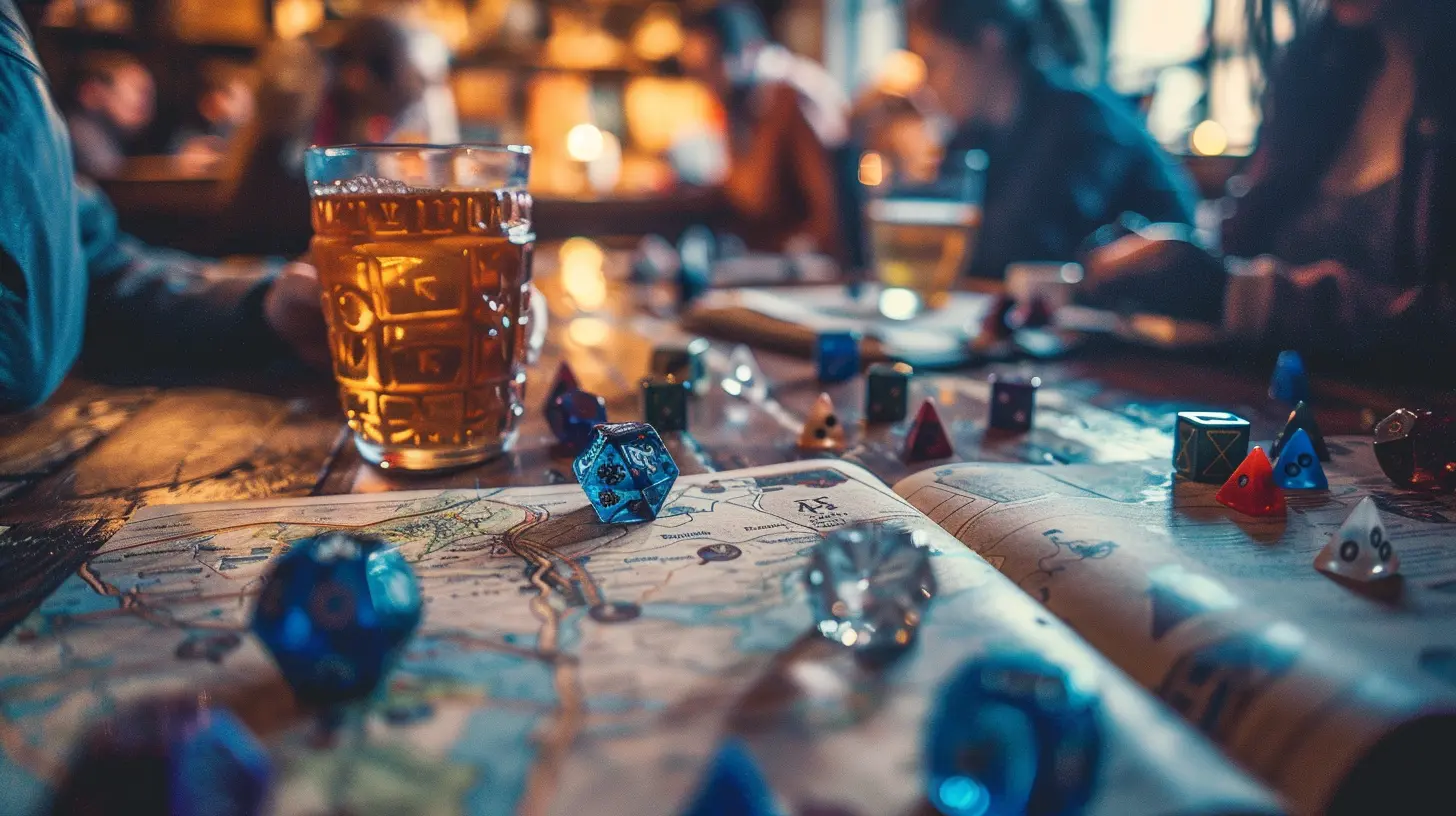
🧠 Empathy and Perspective: Walking in Someone Else’s Boots
When you become someone else—even just for a game—you start to see the world through their eyes. That’s the magic of role-playing.Emotional Intelligence in Disguise
Playing as characters with different backgrounds, goals, and personalities flexes your empathy muscle. You learn to consider alternative perspectives, understand motivations, and navigate emotional nuance. It’s like therapy without the hourly rate.Safe Space for Exploration
Whether you're exploring gender identity, coping with anxiety, or just trying out a new way of thinking, TTRPGs offer a judgment-free arena to explore the human experience. You're not just pretending—you're learning, growing, evolving.🧩 Problem Solving and Conflict Resolution
Okay, so some games do end in fireballs and sword fights. But most often? Problems get solved through teamwork and negotiation.Scenario-Based Learning
You’re dropped into situations with no clear right answer. How do you rescue the princess when she's actually the villain? Do you fight the goblins or befriend them? These moral puzzles teach compromise, strategic thinking, and conflict resolution in a way that’s fun and engaging.Teamwork Makes the Dream Work
No one wins alone in a TTRPG. You need the wizard’s spells, the rogue’s stealth, the paladin’s courage. It’s a perfect metaphor for real-life collaboration—everyone brings something unique to the table.🌍 Inclusion, Diversity, and Safe Communities
At their core, role-playing games celebrate diversity. Different voices, backgrounds, and identities all come together to weave one story. It’s oddly beautiful.Welcoming All Walks of Life
TTRPGs don't care about your gender, race, or background. They care about your creativity, your willingness to play, and your respect for others. The TTRPG community has become a haven for those who often feel like outsiders elsewhere.Homebrew Inclusivity
Many players and DMs create custom worlds where inclusivity isn’t just tolerated—it’s celebrated. Representation matters, and in tabletop games, you can create the world you wish existed.🪄 Confidence and Self-Esteem Boost
It sounds strange, but pretending to be a half-elf ranger can actually help you believe in yourself.Small Wins, Big Gains
Succeeding in a narrative—solving a mystery, winning a battle, protecting a village—feels genuinely rewarding. These in-game accomplishments boost real-world confidence.Finding Your Voice
TTRPGs encourage expression. You learn to speak up, take initiative, and own your choices. That sense of agency transfers beautifully to everyday life.👨👩👧👦 Family and Generational Bonding
TTRPGs aren't just for 20-something fantasy nerds anymore. Families are gathering around the table too, bridging generational gaps and finding common ground.Quality Time, Not Screen Time
Instead of staring at a tablet or scrolling through phones, families build stories together. It’s interactive, creative, and yes—even educational.Teaching Moments Wrapped in Fun
Want to teach patience, critical thinking, or empathy? TTRPGs do all of that without it ever feeling like a lesson. That’s the kind of magic teachers and parents dream of.🕰️ A Timeless Escape From the Modern Grind
Burned out? Anxious? Socially drained? TTRPGs offer a sanctuary.Mental Wellness Through Fantasy
Immersing yourself in a fantasy world gives your mind a break. It’s a creative outlet, a stress reliever, and a form of escapism that still connects you to others.Ritual and Routine
Weekly game nights become something to look forward to. They give structure, purpose, and a steady rhythm in a world that often feels chaotic.📈 TTRPGs in Schools and Therapy? Yup!
Believe it or not, TTRPGs have real-world applications beyond just being a hobby.In the Classroom
Teachers are using them to teach everything from storytelling to math. It’s active, applied learning that engages both left and right brain.In the Therapist’s Chair
Therapists use role-playing games for social skills training, especially with kids on the autism spectrum. It’s playful, safe, and surprisingly effective.✨ Final Thoughts: More Than Just a Game
When you sit down to play a tabletop role-playing game, you’re doing more than creating a story—you’re forging friendships, developing empathy, and becoming a better communicator. You’re laughing, learning, and maybe even healing. It’s not just dragons and dice—it’s connection, creativity, and community.So next time someone asks you what you do for fun, don’t just say “I play D&D.” Tell them you build worlds, solve mysteries, and become a better human—one roll at a time.
all images in this post were generated using AI tools
Category:
Games And Social SkillsAuthor:

Aurora Sharpe
Discussion
rate this article
1 comments
Capri Blair
Thank you for highlighting the social benefits of tabletop RPGs! They truly foster creativity, teamwork, and connection. It’s inspiring to see how these games can strengthen friendships and build community.
October 18, 2025 at 4:31 AM

Aurora Sharpe
Thank you for your thoughtful comment! I'm glad you resonate with the positive impact of tabletop RPGs on creativity and community building.


